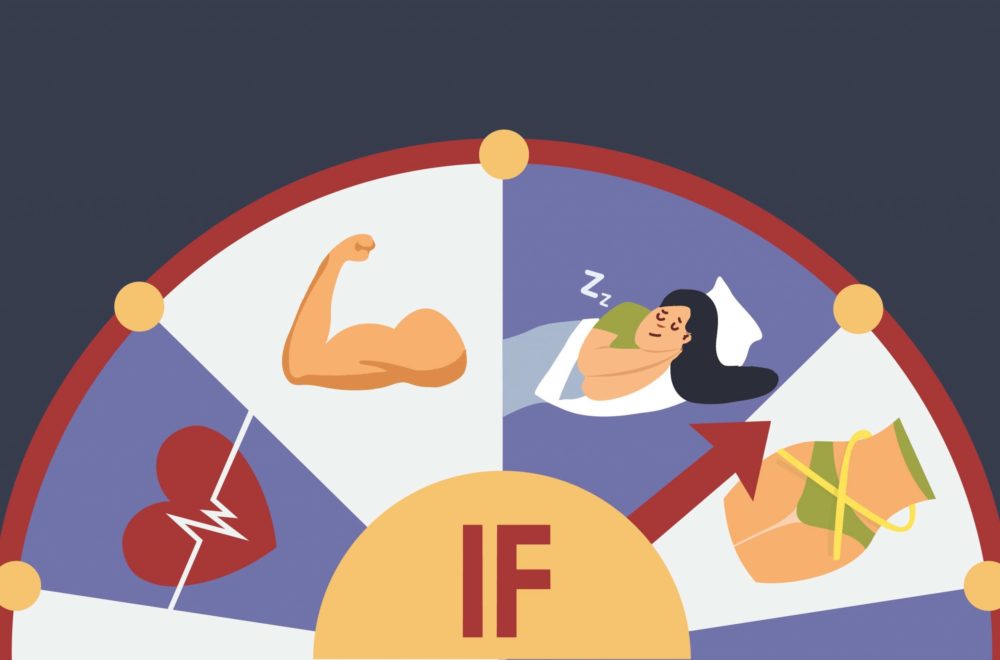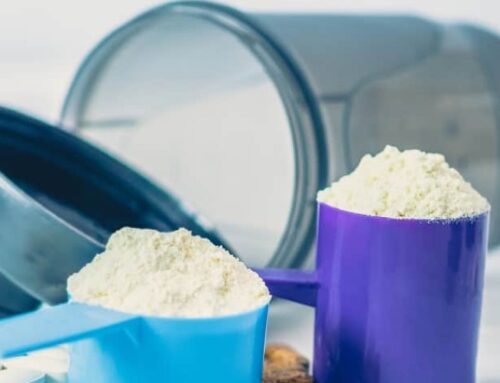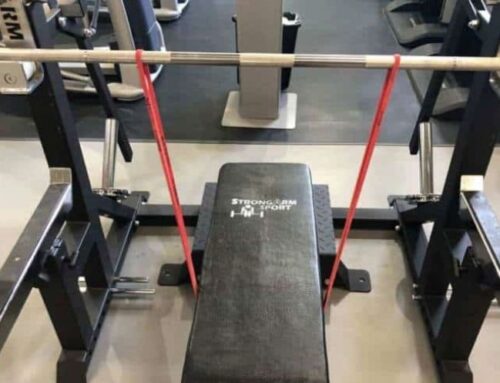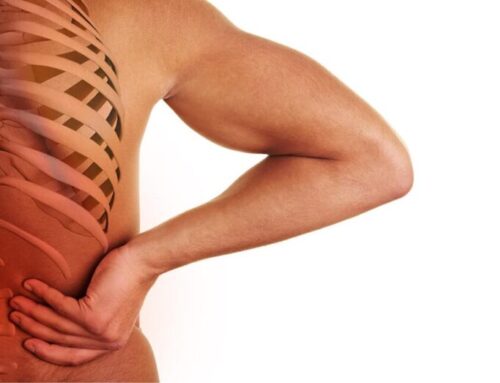Here is an interesting case. Is there a combination of Intermittent Fasting Diet with Bodybuilding?
We have already hosted an article on Intermittent Fasting Diet, not really a diet, but rather a “way of managing” the daily food consumed (which in the majority of intermittent fasting models holds no limitations on calories).
However, which is the objective? To enjoy the greatest benefits from our diet in terms of our body, its function, its weight, or in terms of saving beneficial energy, as well as in terms of our brain activity and muscle mass.
Having this in mind, we wanted to find out the benefits (if there are any) of intermittent fasting with intense & demanding training (as happens bodybuilding).
This diet has multiple applications, as may be used not only for more effective weight loss, or as happens with many people, as a method of improving overall health, as well.
A number of scientific studies to date have associated Intermittent Fasting Diet to longevity, wellness, better fitness & improved brain function (even during the senior age).
The variety of forms where this nutritional program can be applied provides the user with the ease to select & shape its personal diet (that is, the one best suiting its body, responding to goals set, as well as to its work schedule and habits).
No food limitations are necessary, not being a program prohibiting fats, carbohydrates or certain foods.
Provides freedom, which apart from being very functional is much healthier for any person.
The results of the Intermittent Fasting Diet depend on the type selected (how “tough” it will be), as well as your body with the results always differing from person to person.
Below we examine what the Intermittent Fasting Diet could offer to athletes (even to bodybuilders).
Bodybuilding & Nutrition
Nutrition concerning the tough training session for creating muscles is no easy task, requiring knowledge, discipline & proper meal distribution.

People follow a nutritional program WITH or WITH NO nutritional supplements.
However, the diet followed by all athletes seeking muscle gain is nearly the same, based on specific rules on which the body works with and to which we owe the muscle growth, weight loss, fat burning, energy saving, better focus, greater brain alertness and a lot more.
Many people seem confused by the expression “diet for bulking“. Nutrition, to produce results (as the person imagines) involves consistent physical training and great effort.
A diet can’t build muscle from zero and cannot build muscle and ribbing on its own.
Basically, when we deal with “muscle rebuilding diet” or “bulking diet”, we mean a healthy and balanced diet program, especially structured for people with enhanced physical requirements, in particular for athletes.
A similar diet plan involves emphasis on specific things, as protein intake, adequate & proper carbohydrate intake for energy, good fat intake, but also intake of nutrients & vitamins in the right amount, time and way, the keys to greater gains from training.
Intermittent Fasting and Muscle Gains : True and False

Asking people on their view when Intermittent Fasting applies in Bodybuilding, opinions present a differentiation.
Others find intermittent food intake constructive & beneficial for the training process, while others find it difficult to train and risk the athlete’s organism.
What is true?
How Intermittent Fasting works in combination with intense coaching life?
Do cooperate or it’s better to forget it?
As mentioned in our article on Intermittent Fasting Diet, there are many different types of fasting to apply, with different benefits and results in organism and body.
Starting here, we should emphasize on results of a fasting diet related to fasting applied.
Is a low calorie fasting?
Is a fasting process with a time slot during the day?
Is it a 24-hour fast?
We will not go into this article in the process of analyzing each possible form of fasting & its effects, but we will refer to the general application of fasting in the program of an athlete (who wants to increase muscle mass & line).
Many people mistakenly believe that fasting (that is, intermittent food intake) can “damage” muscle mass.
This is not the case when it comes to normal “time breaks” in food intake.
DO NOT CONFUSE HUNGER WITH STARVATION: To have the organism enter the process of burning muscle mass to save energy, it is necessary to be in a state of starvation, practically meaning a long break from food (only happening in malnourished areas of the world).
The organism, for its functioning uses glucose as “fuel” at first. Glycogen is the next most available source of energy. Then – and after exhausting the energy reserves provided by glucose and glycogen – the body begins to burn stored body fat to save energy.
This is where fat burning begins, ribbing of body to get rid of the excess adipose tissue.
Therefore, the organism starts burning muscle mass to gain energy, when all 3 of its previous available sources have been exhausted.
As seen, this cannot happen within a few hours of abstaining from food. It can’t even happen within 24 or even 48 hours of abstaining.
Once we’ve solved this very common misunderstanding about Intermittent Fasting Diet, let’s tackle another very common misunderstanding about the meaning of “fasting”.
Many tend to confuse fasting with its religious interpretation (requiring prohibition of food items for long time).
In the case of dietary fasting program for strengthening the organism, there is no food limitation, no caloric restriction (always within reasonable limits) and no restriction on the number of meals.
In other words, you want many frequent meals (within the time slot suggested by the fasting program selected), you can have them.
You want a few & bigger meals, you can have them as well.
The Intermittent Fasting Diet is not a starvation diet this should be made clear to all persons involved.
It is a nutritional program enhancing the proper and more efficient use of meals for the health benefit of organism and individual, meaning that proper implementation of an intermittent fast could bring significant benefits as:
- weight loss
- body fat loss (even stubborn)
- disease prevention
- strengthening of immune system
- improved insulin sensitivity
- better appetite control
- promoting muscle strength
- improved muscle gains from training
- better focus
- enhanced brain function
Which is the best way for maximum results?
Like any diet plan, the Intermittent Fasting Diet applied properly could secure maximum benefits for the organism.
What “applied properly” means?
Below a number of important rules listed – especially for cases involving exercise – to get the most out of your diet & workout.
No.1: The right choice of fasting program

The fasting program selected should be in line with organism’s needs, with goals desired to achieve (per example, if just muscle rebuilding or fat loss are set as goals), as well as with your biological clock and the daily schedule (work & training).
Therefore, a sort of strategy is necessary for “building” the daily diet plan, a logic sequence is to exist.
What is the logic sequence?
Here’s an example to help you understand the way you should think before making a diet plan complementing personal training sessions.
It makes absolutely no sense to fast 24 hours a day on a scheduled workout. The lack of food will help you in training (on the contrary, it will deprive you of energy and efficiency).
Better to set the day of fasting as a day of rest from your workouts. On the days of training, energy is necessary via the meals, so workouts become more efficient.
No.2: Proper caloric intake
The Intermittent Fasting Diet is not imposing a specific caloric intake; however, this may not be translated as “absolute freedom for exaggeration”.
Intermittent Fasting supports a balanced & healthy intake of nutrients & energy charge (calories), so the organism functions properly.
The goal is to get the necessary calories (neither less nor more) simply in a certain slot selected.
CAUTION: Lack of proper information and excessive zeal can lead to an opposite effect. Reduced caloric intake, instead of helping, can lead to reduced muscle gains from training process, lost effort and work performed.
No.3: Emphasis on protein intake

Proper protein intake for persons following exercise (either dietary alone or in combination with a special dietary supplement) is necessary and very important for muscle rebuilding and development of physical muscle mass.
So what happens with the intermittent food intake program?
How I could meet my organism’s protein needs in the right way?
Studies show that high protein intake at a meal of the day can offset the smaller & more frequent consumption of meals broken down throughout the day, but only to a certain extent.
This is what this means. The body presents a maximum anabolic limit. So by taking this amount of protein in one meal you manage not having losses if you followed a non-fasting program, however you do not stop having losses.
Therefore, many experts recommend better management of fat & carbohydrate intake in the time slot so allowing the person to fast, with no interruption of the protein intake in any case and throughout the day (within and out of the fasting slot)
No.4: Pre-workout meals
All athletes know the importance of a right meal before a training session. The body – especially before a demanding workout – needs a large amount of “fuel”, that is energy.
The foods selected prior to a workout are very important, as the organism has specific needs at this stage.
You need to select the foods in a strategic, sort to say, way to make up the pre-workout meal. You need energy and nutrients as well.
Many people make the mistake of regularly selecting protein powder as a pre-workout meal. However, improper use of these supplements do more harm than good to training.
Excessive consumption of sweeteners from these supplements can eventually cancel all efforts and results of Intermittent Fasting applied.
No.5: Enhanced fat burning
Fasting can help on achieving enhanced body fat burning for producing extra beneficial energy, however, only if applied correctly.
So unlike to what many skeptics claim – intermittent fasting as a dietary plan – can achieve a significant increase in metabolic rate and enhance body fat loss.
This is one of the main reasons for recommending this diet to people following exercise programs and wishing to manage the body weight.
Fasting leads the body to burn fat, save energy required to maintain the organism functioning.
In fact, when there is a combination of fasting with intense & high-intensity physical exercise, the results in fat loss can be truly amazing.
Combining Intermittent Fasting Diet with a demanding exercise program (as in the case of Bodybuilding) can result in rapid loss of even most stubborn local body fat.
No.6: Creatine & Intermittent Fasting
Creatine intake does not interfere with the Intermittent Fasting Diet. Creatine is a NON-CALORIFIC nutrient, so no effect on fasting program applied.
The fact that it has no calorific value means that it does not affect insulin levels.
However, creatine intake – though has no effect on insulin levels – affects fasting relating to the phenomenon of autophagy & ketosis occurring in the organism after abstinence from food.
The effects are not significant and so the use of creatine supplements is not prohibited.
No.7: Dietary bodybuilding supplements (Bulking)

The ideal use of these supplements combined with an Intermittent Fast Diet happens at specific times.
Again, however, no rule is possible, as this depends on each nutritional supplement and its composition.
Supplements with higher caloric value or higher sugar content can have a negative effect, on the fasting schedule, as upset the blood glucose levels.
Therefore, it is better to take some of these supplements during the time slot of fasting allowing food consumption, while others may be received even during the abstinence phase.






